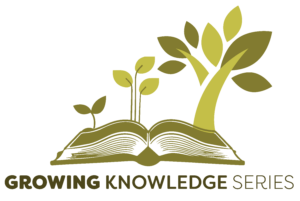Events

- This event has passed.
Growing Knowledge Series: “When the World Stopped”: How undergraduate women leaders developed their identities during an unanticipated transition
July 31, 2023 @ 2:00 pm - 3:00 pm UTC-4
$10
One of the many aims of colleges and universities is helping students to develop leadership knowledge and skills in a global world. This is recognized to be a complex goal influenced by a number of factors including identity development and how students understand themselves as leaders. Developing a leadership identity is a multifaceted process that can be influenced by many factors, including time, external events, intentional programs and positions, and transitional experiences.
This study centers on leadership identity development for college women, a group that has become a focus of increasing attention in recent years. The study also considers identity development during transitions, such as that thrust upon all of us by the COVID-19 pandemic. In this study, the transitional experience is centered and is defined as an event that results in changed roles, relationships, routines, and assumptions.
In this research, I explore how undergraduate women make meaning of their formal leadership experiences during a transition in their personal and/or professional lives, with an emphasis on the process of leadership identify development. The study focuses on students’ experiences reported over time during the transition to remote education at the start of and during the COVID-19 pandemic. The findings from this study will have implications for higher education practice, college student leadership development, and formal and informal training and development for women leaders on campus.
$10 for ACPA Individual Members
$10 for ACPA Chapter Only Members
$10 for Non-Members
Presenter:
Krista Klein, Rutgers University-New Brunswick, Assistant Dean / Director for Student Outreach and First Year Transition
Krista Klein is a lifelong learner, educator, scholar, and mother dedicated to supporting other women-identified folks who are navigating major transitions in their personal and professional lives. Throughout her nearly 20 years of leadership experience, several anticipated and unanticipated changes led her to study, practice, and collaborate with others on how to put together the pieces of the complex mosaic of life. Krista’s leadership is centered in higher education and includes community engagement, student transitions, training and development, and diversity, equity, and inclusion work.
ACPA/NASPA Professional Competencies:
Leadership
Organization and Human Resources
